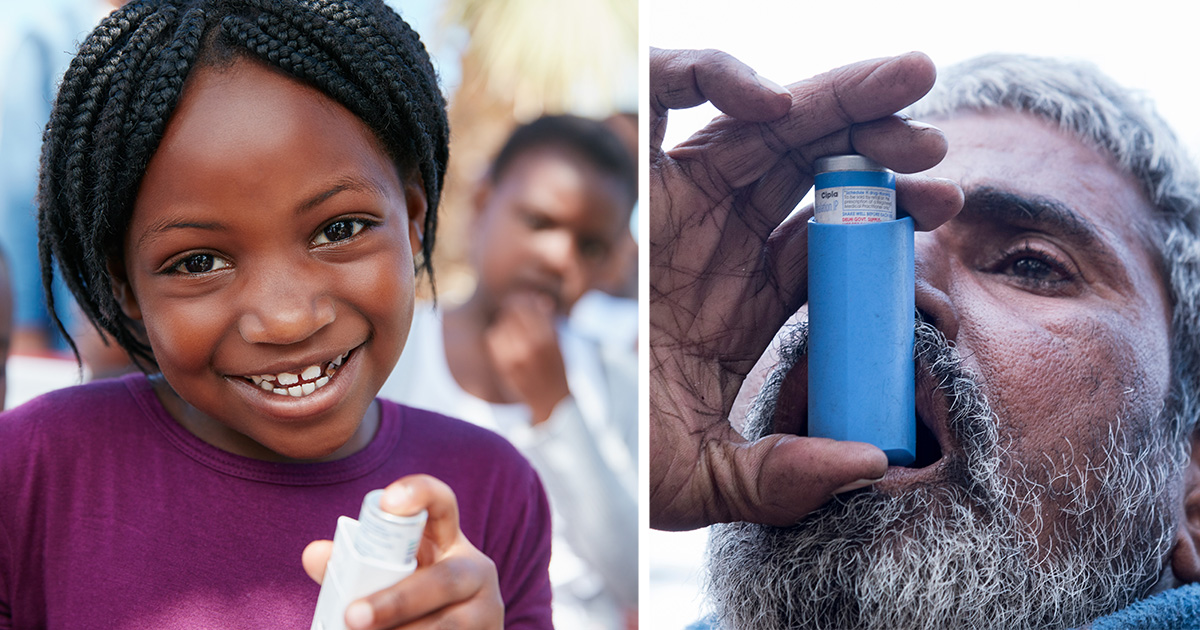The Woolcock Institute of Medical Research

Inhaled treatments for all
This World Asthma Day (6 May 2025), the Global Initiative for Asthma (GINA) is calling for access to inhaled treatments for all.
Professor Helen Reddel, research leader of the Woolcock’s Clinical Management group and Chair of the GINA Science Committee says that these medications are essential both for controlling asthma and treating attacks.
Asthma is one of the world’s most common chronic non-communicable diseases. It affects more than 260 million people and is responsible for more than 450,000 deaths annually. Most of these deaths are preventable. Ninety-six percent of them occur in low to middle-income countries, where lack of availability or high cost of inhaled medicines, especially inhaled corticosteroid-containing inhalers, are major contributors. Even in high income countries, high costs can limit access resulting in poorly controlled asthma and preventable asthma deaths.
That’s something that needs to change.
“Nobody should die from asthma simply because they can't access an inhaler," Professor Reddel said. "We are urging global health leaders to prioritise access to affordable inhaled medications as an essential part of universal healthcare. It is particularly important to provide global access to inhalers containing corticosteroids, as these dramatically reduce the risk of asthma attacks and asthma deaths."
Want to stay up to date with our research on sleep and respiratory conditions?
Sign up to our quarterly newsletter
TREATMENT UPDATES
The 2025 update to the GINA Strategy Report is also being released today. Based on a twice-yearly cumulative review of research literature by the GINA Science Committee and extensive discussion about issues relevant to clinical practice and research, key changes include:
- A new Type 2 biomarkers resource – the table includes information about their role in diagnosis, assessment and management as well as the factors contributing to variability in blood eosinophil count and exhaled nitric oxide (FeNO);
- Supporting studies for GINA’s long-standing recommendation that multiple factors, including Type 2 biomarkers, should be considered in the assessment of patients’ risk of future exacerbations;
- Changes to guidelines for the diagnosis of asthma in children aged 5 years and younger including a pragmatic approach to diagnosis with three clinical criteria that can be summarised briefly as: (1) recurrent acute episodes of wheezing with or without interval asthma-like symptoms; (2) an alternative diagnosis is unlikely to be causing the symptoms; and (3) a timely response to asthma treatment, including improvement in symptoms within minutes after administration of SABA (in a health care setting or at home) or during a 2–3 month diagnostic trial with daily ICS plus as-needed SABA;
- Changes to guidelines for the treatment of asthma in children aged 5 years and younger with updates based on evidence for efficacy, effectiveness and safety;
- Updates on use of intravenous magnesium, and on dosage of inhaled medications during an acute care presentation for asthma exacerbations in children aged 5 years and younger;
- Updates to the diagnostic flow chart for asthma in adults and adolescents;
- A reboot of the asthma cycle of care, which has illustrated the GINA’s recommendations about personalised asthma management since 2014, to include consideration of biomarkers;
- A new figure showing factors including the patient’s phenotypic characteristics (including biomarkers), comorbidities, patient views, and practical issues which should be taken into account by clinicians when designing for personalised asthma management;
- Changes to the Track 2 treatment recommendations for adults and adolescents to minimise exposure to the adverse effects of high dose ICS;
- A new section on the impact of climate change and extreme weather on people with asthma; and
- A review of the severe asthma decision tree, re-organising and simplifying the investigations that would be done at a specialist level.










